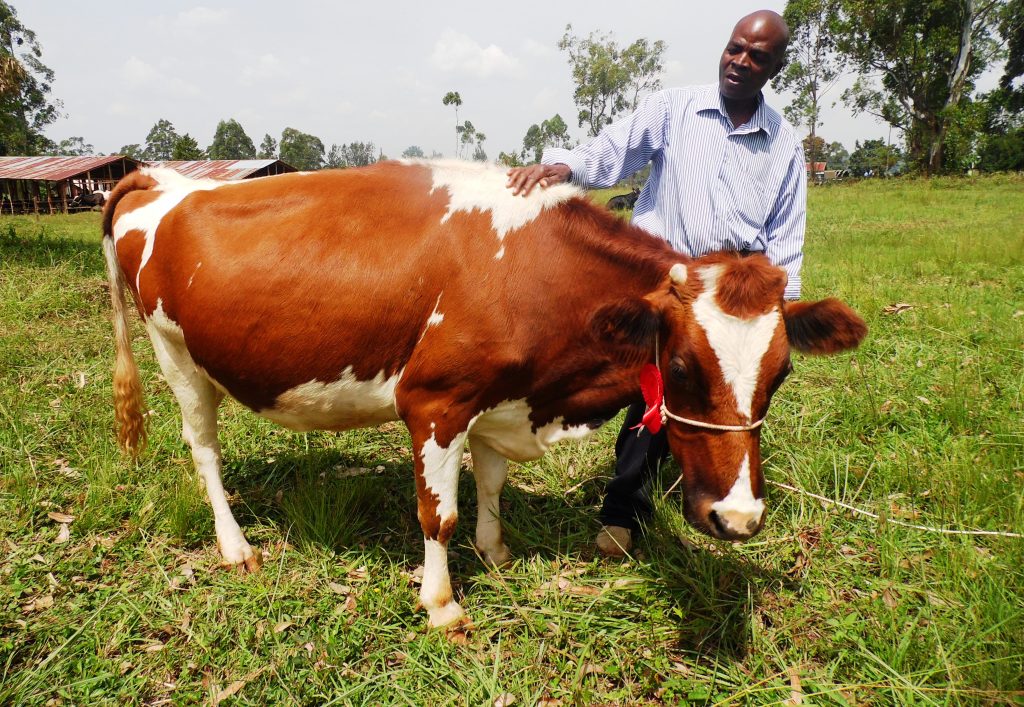Kakamega County farmer Isaac Shilaro with his cow at the Moi ASK Shoground, Kakamega, in 2016. Homa Bay youths are making cheap, but rich feeds from water hyacinth. Photo by Laban Robert.
In offering farmers a cheap animal meal while dealing with the menace of the hyacinth, Homa Bay youths are manufacturing a ‘universal’ feed from the weed that is threatening Africa’s biggest fresh water mass, Lake Victoria.
The Biofit Feed, which has 55 per cent proteins, boosts the yields of all meat, milk, eggs and other animal products by at least 15 per cent.
Oyungi Omondi of Biofit Feeds said the meal, has the hyacinth as one of the main binding agent, besides contributing at least 10 percent of the protein content.
“It has been balanced to cater for a variety of animals’ nutritional needs for productivity and protection against mineral deficiency diseases,” he said.
Apart from helping a number of youths, who are involved in the harvesting and processing of the hyacinth from the lake, the initiative is offering a possible solution to the weed, which is threatening life.
For more than 10 years, plans to eliminate the hyacinth, which is chocking the Western Kenya lake have failed.
The youths are harvesting 300kilos of the weeds daily. But Omondi hopes to scale up the harvesting to two tonnes per day.
This, among other efforts could reverse the effects of the weed, which is turning the lake into dry land.
For high yields in meat, eggs, pork and milk, plenty proteins are key. That is why Omondi’s group adds dagaa and other undisclosed plant ingredients to the meal to provide universal minerals for vigorous growth.
Maize germ is the main raw material for making animal feeds in Kenya. But with the raging hunger, maize supply has sunken and the cost of the feeds has grown by more than Sh200 for every 70kg bag.
Other farmers have abandoned formulating their own feeds because of the high costs of the materials.
The cost of production of one litres is rising to about Sh26, yet farmers have not received an increment from the Sh28.
A kilo of the Biofit Feed costs Sh24.5 compared to the about Sh39 per kilo of the common commercial feeds.
Animals like cows cannot feed on the hyacinth for long because of an irritating substance in the leaves. But processing makes it more palatable.
Omondi can be reached on +254718799604

















Comments powered by CComment